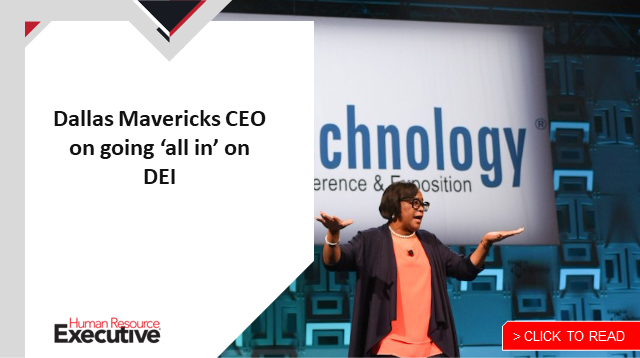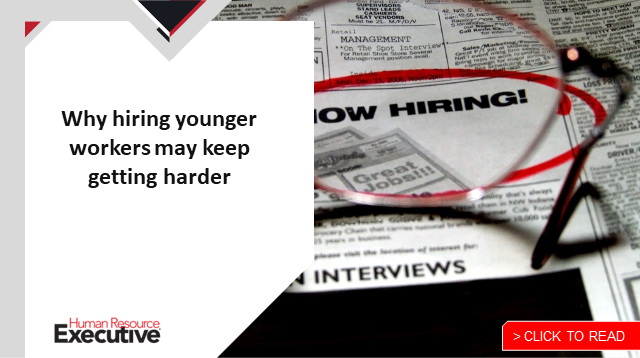Among the many realities uncovered by the COVID-19 pandemic have been the struggles facing today’s caregivers. With schools and support services shuttered in the early days of the health crisis, many employees were forced to adjust to new responsibilities, balancing work while caring for children or aging parents. Some employers on the leading edge recognized that burden and quickly responded with new leave options, subsidies and mental health support; others are still taking note.
As the focus on the power—and challenges—of caregiving is growing in HR and benefits circles, it’s long been at the heart of Help at Home, whose 50,000 caregivers provide in-home services for more than 66,000 clients monthly across 12 states. Overseeing the people aspects of that work is Lisa George, who came out of retirement this summer—after a career that included HR leadership positions at Shearer’s Snacks, Walmart, Cardinal Health, Ann Taylor and more—to take on the CHRO role at Help at Home.
George says she’s excited by the prospect of the mission-driven work of Help at Home—which has been recognized by Forbes as a Best Employer and a Best Employer for Women—and, particularly, the influence HR has in helping to carry out that work.
“When we get that match right between caregiver and clients, that’s where those memorable moments—that magic—really happen,” she says. “Our caregivers have relationships that last for years with our clients and we’re continuing to work to make sure those matches are as good as they can be to build the right experience for both our clients and our caregivers.”
George recently spoke with HRE about how she intends to do that:
HRE: You retired from Shearer’s last year—what brought you to Help at Home?
George: It was one of those rare opportunities in life where something just sort of materializes. I was not even in the market looking; I was consulting and doing some other things. But what really got my curiosity piqued was the mission of [Help at Home]. I worked in healthcare for a lot of years with Cardinal Health and I really enjoyed it. So, when talking about a business like Help at Home that is all about impacting the quality of people’s lives and making a difference, that matters to me.
And this is a growing market. Nine of out 10 people want to try to age in their own homes and do it in a dignified and respectful way with a great quality of life. I have a lot of friends who have gone through this journey with parents and loved ones; I’m blessed [that] my parents are at home and are able to live without additional assistance at this point in time, but they’re in their early 80s and there were points in their life not too long ago where they could have used more assistance. So, if we can make a difference in individual people’s lives, and I can be some small part of that, that’s important to me.
HRE: Given that employees work directly in clients’ homes and not in a communal setting, what are the challenges of building company culture—and how are you working to overcome them?
George: As I learn more and more about Help at Home, I’ve found that there are a number of things besides the mission that are capturing my interest. We’ve got a 45-year-rich history here, with a lot of growth and a culture of putting the caregiver first. That’s a really important lens for us; if we’re taking care of our caregivers, treating them with respect, upskilling them, professionalizing what they do and, frankly, making them feel respected and valued, that will make it a great experience for the caregiver. In turn, they will do a fantastic job to take care of our clients. It’s that simple. We look at virtually every decision we make through that lens of the caregiver first. That’s what drives company culture.
HRE: How are you experiencing the Great Resignation or “quiet quitting”?
George: Everybody is feeling staffing challenges. We’re no exception on that. But again, we believe we’re creating a culture that puts them first and that helps to differentiate us in the marketplace, where we’re hopefully a place caregivers want to come to work—and stay and actually grow their careers. A lot of the focus of the work we will continue is around trying to make sure caregivers have a chance to learn new skills and grow and that we know what really matters to them. We just completed an employee engagement survey and the really good news is the things we’re working on and that are on our agenda are the things we heard from them, and that runs the gamut—total rewards, recognition, flexibility and, of course, competitive pay matters. But there are also things like [development opportunities] for those who have an interest in growing their careers; we’re providing those opportunities.
HRE: What are the technology challenges of having a primarily “deskless” workforce like yours?
George: It’s always an ongoing challenge. We need to have a balance between making sure we’re communicating enough without inundating our caregivers. We do a lot of communication with text through mobile devices, which is a great, just-in-time method. We’ve also done a lot to digitize the whole recruiting process and we’re continuing our journey around improving the onboarding and orientation process by making it more automated. We’re piloting a couple things as well that give us even more flexibility in how we engage and communicate so we’ll see where that takes us.
We also have an LMS that we’ve been using for training. If caregivers feel like they have the opportunity to grow and learn skills, that’s an important element for helping them avoid burnout. We’re trying to make sure we keep that in mind as we build new training programs.
HRE: Do you have a personal motto or mantra that keeps you motivated?
George: As I was explaining it to my team in an early meeting, they were curious how I approach HR, what’s my philosophy. It’s this: We have to be very practical in what we deliver, particularly in a business like this where demand is growing and business is growing—you have to be focused on those things that are the most critical and deliver really, really well. In order to do that, your solutions have to be practical, have to be impactful. And if you can get everyone aligned around the value that creates, it’s creating the pull into the business of whatever HR is delivering—rather than having to push it into the business.
Another focus is not only keeping an eye toward meeting the business where it is and what it needs today but also laying the groundwork to set the business up for long-term success and sustainability in growth mode. Sometimes that means making those decisions around things that might take longer or are more difficult to build. It’s about balancing the needs of the short- and long-term.
HRE: How are you working to manage the constant change in today’s world of work?
George: I think we in HR have to be incredibly collaborative with our business leaders—understanding the business, the needs. There’s always a give and take and, frankly, building out contingency plans. Sometimes I am fine with trying something and adjusting as we learn more; the healthcare industry, the economy, the world—so much is changing so rapidly and we often have to make decisions in somewhat ambiguous situations. So, we have to be thoughtful in managing risks, of course, but also be willing to try new things and adjust—that’s often a better course of action than waiting to make something 100% perfect. By the time you do that, things have changed again.
HRE: If you hadn’t landed in HR, where do you think your career would have taken you?
George: Growing up, I wanted to be an artist or a performer—but that wasn’t in the cards because I have no ability! So, there goes that pipe dream. People often describe me as being very close to the business. My undergrad is in marketing and I try to make sure I’m a business person who happens to practice HR.
With that in mind, I actually had a pivot point early in my career where I thought about going into marketing because it had the creative elements that I liked—that [interest] has assisted me well in HR in terms of thinking about, what is the art of the possible? How do we get to a yes? How can we create that future state vision?
Midway through my career, I toyed with the idea of flipping things and going the GM route—owning a business. I dabbled a bit and still do on occasion as an entrepreneur but I think I’m better at HR than those other areas. So, I stuck with what worked.

